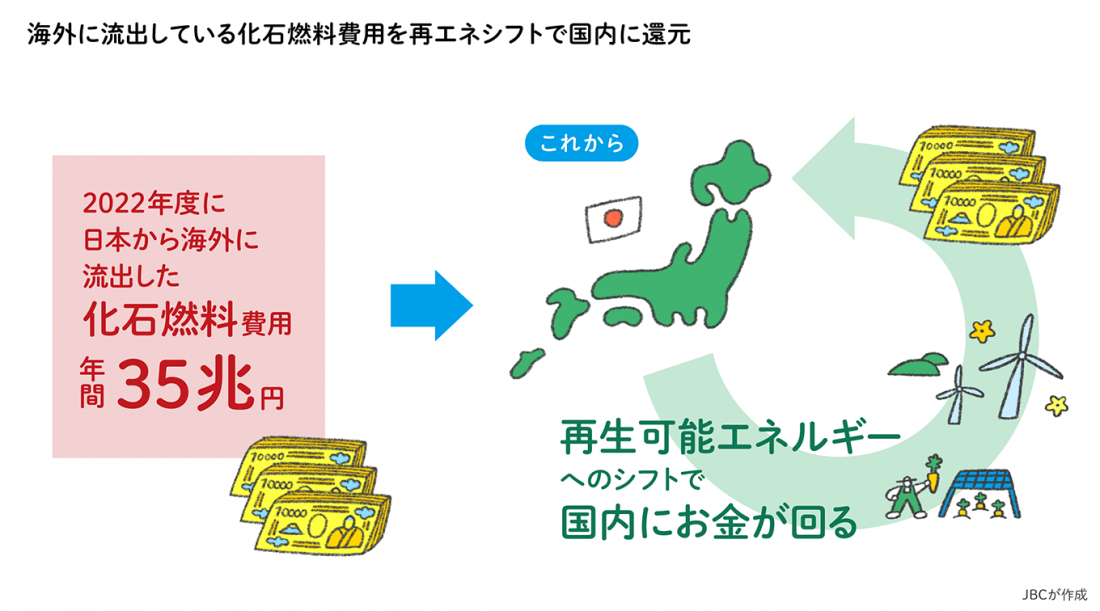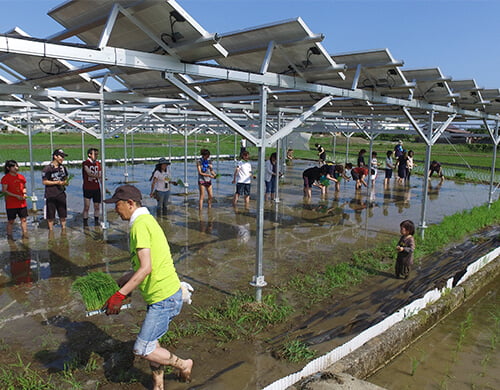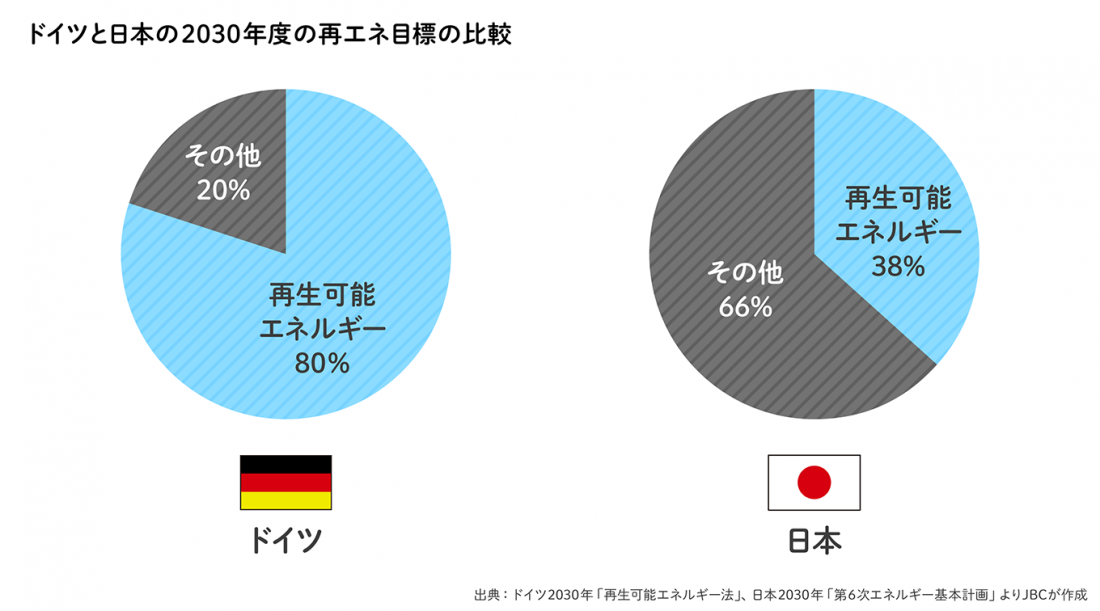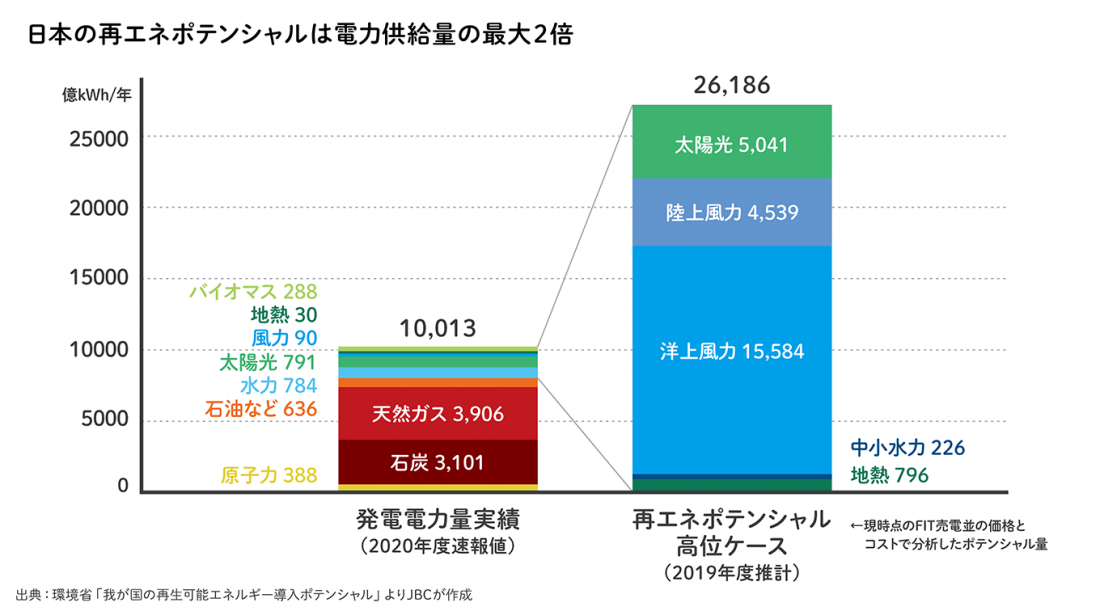
Promoting Energy Conservation &
Renewable Energy
for a Secure and Prosperous Society
Japan sent 35 trillion yen overseas to buy fossil fuels in fiscal 2022.
We should transition now to a stable supply of renewable energy,
instead of continuing to pay so much for fossil fuels,
which are risky due to fluctuating import prices.
Fossil fuels mean energy insecurity and high cost
35 trillion yen. Can you picture that? That’s how much Japan sent outside the country to pay for fossil fuels in fiscal 2022, more than double the 16.5 trillion yen paid in 2019. The increase was due to various factors, mainly Russia’s invasion of Ukraine and rising energy demand in emerging countries. Notably, the price of coal rose by a factor of 3.6. Electric utilities responded by raising electricity rates, straining household finances.
Japan is only 12% energy self-sufficient. We rely on fossil fuel imports to generate electricity, so if fuel supplies are destabilized for any reason, our electricity supply and energy prices are immediately affected.
Expanding energy conservation & renewable energy can help the economy.
With renewable energy, fuel costs are negligible, and there is no need to worry about the risk of import price fluctuations associated with fossil fuels. Also, maintenance and operating costs for renewables can be kept relatively low. Recent advances in energy storage and grid-connection technologies are overcoming previous challenges, making it possible to provide a stable supply of renewable energy.
It is also crucial to significantly reduce energy consumption by promoting energy conservation. The introduction of LED lighting, better building insulation, high-efficiency equipment and other energy-efficient technologies is noticeably delayed in Japan. By improving public policies, reviewing systems and increasing subsidies, Japan can accelerate the transition to a society that is more energy-efficient than ever before.
If Japan can move toward 100% renewable energy and being an energy-efficient society, the massive flow of funds spent to import fossil fuels can be retained in domestic markets.

Moreover, if electricity is generated and consumed locally, money can circulate in the community, and can be used to enhance community services such as education, welfare, nursing care, and medical care. A switching from fossil fuels to renewable energy would not only reduce CO2 emissions but also enrich local economies.

Photo: Odawara Kanagote Farm
Germany, a renewable energy leader, revised its Renewable Energy Sources Act in March 2022 and announced it would source almost all of its electricity from renewables by 2035, with an interim target of 80% renewables by 2030. In contrast, Japan’s target for 2030 is stuck at only 36% to 38%.

However, Japan’s Ministry of the Environment has published an estimate showing that renewable energy in Japan has the potential to provide up to twice the country’s current electricity supply. So, what does Japan need to do to curb global warming and build a sustainable society? We need to end the era of importing and burning fossil fuels to get energy, and make the smooth transition into an energy self-sufficient society based on renewable energy sources such as solar, wind, geothermal, small-scale hydroelectric, and local biomass.


